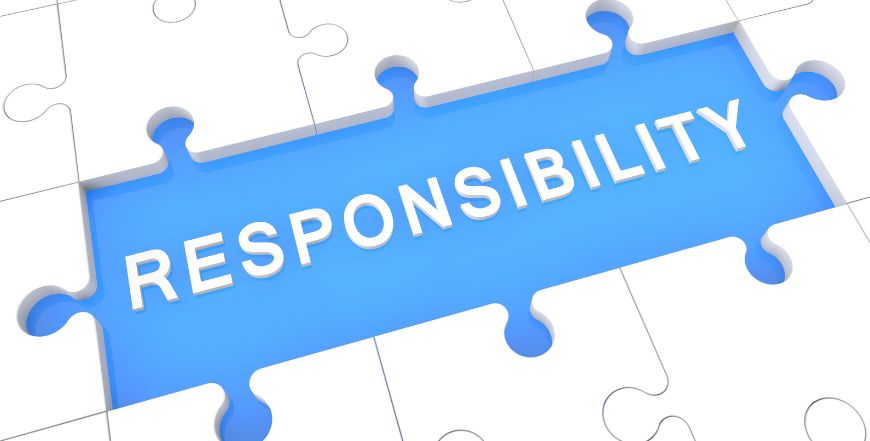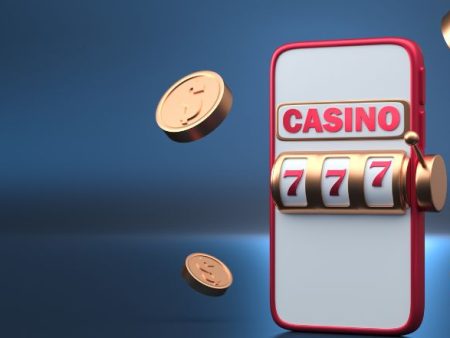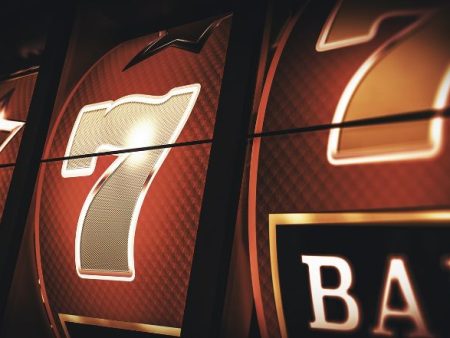Learn how to gamble safely with our guide to responsible online casino gaming. Discover warning signs of addiction, practical tips to stay in control, and resources for getting help.
How to Play Responsibly at Online Casinos
Contents
- 1 A Comprehensive Guide to Play Responsibly
- 2 Understanding Responsible Gambling
- 3 The Importance of Responsible Play
- 4 Warning Signs of Gambling Addiction
- 5 Obsession with Gambling
- 6 Gambling Despite Negative Consequences
- 7 Emotional and Behavioral Changes
- 8 Tools and Strategies for Responsible Online Gambling
- 9 Setting Limits and Boundaries
- 10 Utilizing Platform Safety Features
- 11 Maintaining Healthy Gambling Habits
- 12 Overcoming Gambling Addiction
- 13 Self-Exclusion Programs
- 14 Content Blocking Technology
- 15 Financial Management Strategies
- 16 Professional Help and Support
- 17 Addressing Underlying Issues
- 18 Building a Support System
- 19 Open Communication
- 20 Finding Alternative Activities
- 21 Conclusion
A Comprehensive Guide to Play Responsibly
Online casinos have experienced tremendous growth in recent years, providing convenient entertainment for millions of players worldwide. While gambling can be an enjoyable pastime, it’s crucial to approach it responsibly to prevent potential harm. This article explores the concept of responsible gambling, warning signs of addiction, effective strategies to maintain control, and resources for those seeking help.

Understanding Responsible Gambling
Responsible gambling refers to a set of initiatives, tools, and policies designed to ensure players can enjoy online gambling safely without developing harmful behaviors. The core principles include preventing gambling addiction, protecting vulnerable individuals, and providing transparent gaming environments.
Responsible gambling encompasses both the gambling providers’ obligation to create safe environments and the players’ responsibility to make informed choices. Key concepts that underpin responsible gambling include awareness of risk, maintaining control, setting appropriate limits, and treating gambling solely as entertainment.
The distinction between responsible gambling and problem gambling is important to recognize. Responsible gambling involves measures and tools that help players maintain control over their gambling activities, while problem gambling occurs when individuals lose control of their gambling habits, resulting in financial, emotional, and social consequences.
The Importance of Responsible Play
Online gambling platforms offer unprecedented accessibility—allowing people to wager from home, work, or anywhere with an internet connection. This convenience, while beneficial for casual entertainment, can potentially accelerate problematic gambling behaviors when not approached mindfully.
Responsible gambling practices serve as protective measures that help players:
- Maintain gambling as an enjoyable recreational activity
- Prevent financial hardship related to excessive gambling
- Protect mental health and personal relationships
- Ensure gambling remains balanced with other life priorities
- Make informed decisions about their gambling behavior
Playing responsibly isn’t just about avoiding addiction; it’s about cultivating a healthy relationship with gambling that prioritizes enjoyment and entertainment over monetary gain.
Warning Signs of Gambling Addiction
Recognizing the early warning signs of gambling addiction is crucial for early intervention. According to research from the Research Institute on Addictions, between 1% and 2% of U.S. adults, approximately 2 to 4 million people, will experience a gambling disorder in their lifetime.
Obsession with Gambling
One of the most common indicators of gambling addiction is an obsession with gambling activities. This may manifest as:
- Constantly talking about gambling or making plans to gamble
- Preoccupation with the next gambling session
- Loss of interest in previous hobbies or activities
- Repeatedly reliving past gambling experiences
- Obsessing over gambling websites and apps
- Continuously researching gambling strategies
- Gambling simply for the sake of gambling, regardless of the type
Gambling Despite Negative Consequences
A hallmark sign of addiction is continuing to gamble despite experiencing negative consequences. While casual gamblers might accept occasional losses as part of the experience, problem gamblers persist even when facing serious repercussions.
This persistent behavior often leads to deteriorating financial situations, strained relationships, and compromised mental health.
Emotional and Behavioral Changes
Additional warning signs include noticeable changes in emotions and behavior:
- Using gambling as an escape from stress, anxiety, or depression
- Experiencing restlessness or irritability when attempting to cut down on gambling
- Unsuccessful attempts to control, cut back, or stop gambling
- Lying to conceal gambling activities or their extent
- Risking important relationships or career opportunities due to gambling
- Relying on others to provide money to alleviate desperate financial situations caused by gambling
Tools and Strategies for Responsible Online Gambling
Online casinos and regulatory bodies have developed various tools and approaches to promote responsible gambling. These measures aim to help players maintain control while enjoying their gambling experience.
Setting Limits and Boundaries
One of the most effective strategies for responsible gambling is establishing clear limits before you begin playing:
- Budget Limits: Determine a specific amount of money you can afford to lose and strictly adhere to this limit. Never gamble with money needed for essential expenses like rent, food, or bills.
- Time Limits: Decide how much time you’ll spend gambling and set alarms or reminders to stop. Many online platforms offer tools to help monitor and limit your playing time.
- Deposit Limits: Utilize features offered by online casinos that allow you to set daily, weekly, or monthly deposit limits.
- Loss Limits: Establish a threshold for acceptable losses, after which you’ll stop gambling for a designated period.
Utilizing Platform Safety Features
Modern online casinos offer various built-in features designed to promote responsible gambling:
- Self-Assessment Tools: Many platforms provide questionnaires to help players evaluate their gambling habits and identify potential risk factors.
- Reality Checks: These periodic notifications remind players how long they’ve been gambling and may display information about their wins and losses.
- Cooling-Off Periods: Some platforms allow players to temporarily suspend their accounts for short periods (days or weeks) when they feel they need a break.
- Activity Statements: Regular reports detailing gambling activity, including time spent playing and money won or lost, help maintain awareness of gambling habits.
Maintaining Healthy Gambling Habits
Beyond utilizing available tools, developing personal habits that support responsible gambling is essential:
- Don’t gamble when upset, stressed, or under the influence of alcohol or drugs
- Understand how games work and their odds before wagering any money
- Balance gambling with other recreational activities
- Take frequent breaks during gambling sessions
- Never chase losses or view gambling as a way to make money
- Leave credit and debit cards at home and only gamble with money you’ve specifically allocated for entertainmen
Overcoming Gambling Addiction
For those who recognize problematic gambling behaviors in themselves or loved ones, several effective approaches can help regain control and recover from gambling addiction.
Self-Exclusion Programs
Self-exclusion is a powerful tool that allows individuals to ban themselves from gambling venues or platforms:
- Venue-Specific Exclusion: Players can exclude themselves from physical casinos, clubs, pubs, or TABs
- Online Self-Exclusion: Many online platforms allow players to block their own access to gambling websites and apps for specified periods
- Multi-Operator Programs: Some jurisdictions offer programs that enable exclusion from multiple gambling operators simultaneously
Self-exclusion creates a barrier between the individual and gambling opportunities, making it more difficult to act on impulsive urges to gamble
Content Blocking Technology
Technology can provide additional barriers to prevent problematic gambling:
- Gambling-Specific Blockers: Software applications like Bet Blocker and GamBan can restrict access to gambling websites and applications
- General Content Filters: Standard internet filtering software can be configured to block gambling-related content
- Banking Restrictions: Some banks offer features that allow customers to block gambling transactions on their accounts.
These technological solutions help create a gambling-free environment that reduces temptation and supports recovery efforts.
Financial Management Strategies
Limiting access to funds is often crucial in early recovery:
- Limited Access to Cash: Carry only small amounts of cash to reduce gambling opportunities
- Account Management: Consider having someone trusted temporarily manage financial accounts
- Automatic Bill Payments: Set up automatic payments for essential expenses to ensure they’re covered before money can be spent on gambling
- Daily Withdrawal Limits: Implement restrictions on how much money can be withdrawn from accounts each day
Professional Help and Support
Recovery from gambling addiction often requires professional assistance:
- Therapy and Counseling: Cognitive Behavioral Therapy (CBT) has proven particularly effective for gambling addiction, helping individuals identify and change harmful thought patterns and behaviors
- Support Groups: Organizations like Gamblers Anonymous provide peer support from others who understand the challenges of recovery
- Treatment Programs: Specialized programs combining therapy, education, and support can address both gambling behaviors and underlying issues
- Medication: In some cases, medication may help manage co-occurring conditions like anxiety or depression that may contribute to gambling problems
Addressing Underlying Issues
Effective recovery often involves identifying and treating underlying factors that contribute to problematic gambling:
- Mental Health Concerns: Depression, anxiety, and other mental health conditions may drive gambling behavior and should be addressed concurrently
- Stress Management: Developing healthy coping mechanisms for stress can reduce the urge to gamble as an escape
- Life Skills Development: Building skills in areas like financial management, healthy recreation, and relationship building supports long-term recovery
Building a Support System
Recovery from gambling problems is rarely successful in isolation. Building a strong support network can significantly improve outcomes.
Open Communication
Talking about gambling problems with trusted individuals can reduce shame and isolation:
- Share your struggles with supportive family members or friends who won’t judge you
- Consider family therapy to address how gambling has affected relationships and to rebuild trust
- Join support groups where you can connect with others facing similar challenges
Finding Alternative Activities
Developing new interests and activities is crucial for long-term recovery:
- Identify activities that provide similar excitement or enjoyment without the risks of gambling
- Rebuild social connections that may have been neglected during periods of heavy gambling
- Engage in physical activities that can reduce stress and improve mood
- Volunteer or participate in community activities that provide meaning and purpose
Conclusion
Responsible gambling at online casinos requires awareness, intentionality, and the utilization of available tools and resources. By understanding the warning signs of addiction, implementing preventive strategies, and knowing how to seek help when needed, players can enjoy online gambling as a form of entertainment without experiencing negative consequences.
The gambling industry continues to evolve, with increasing emphasis on player protection through responsible gambling initiatives. However, ultimate responsibility lies with individual players to maintain control over their gambling activities, set appropriate limits, and seek help if gambling begins to cause problems.
Whether you’re a casual player looking to maintain healthy gambling habits or someone concerned about problematic gambling behaviors, the strategies and resources outlined in this article provide a roadmap toward safer, more enjoyable online casino experiences. Remember that gambling should always be approached as entertainment—never as a source of income or a solution to financial or emotional problems.

















